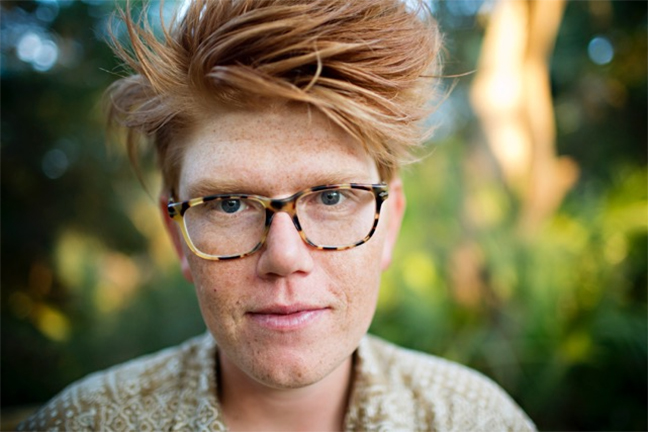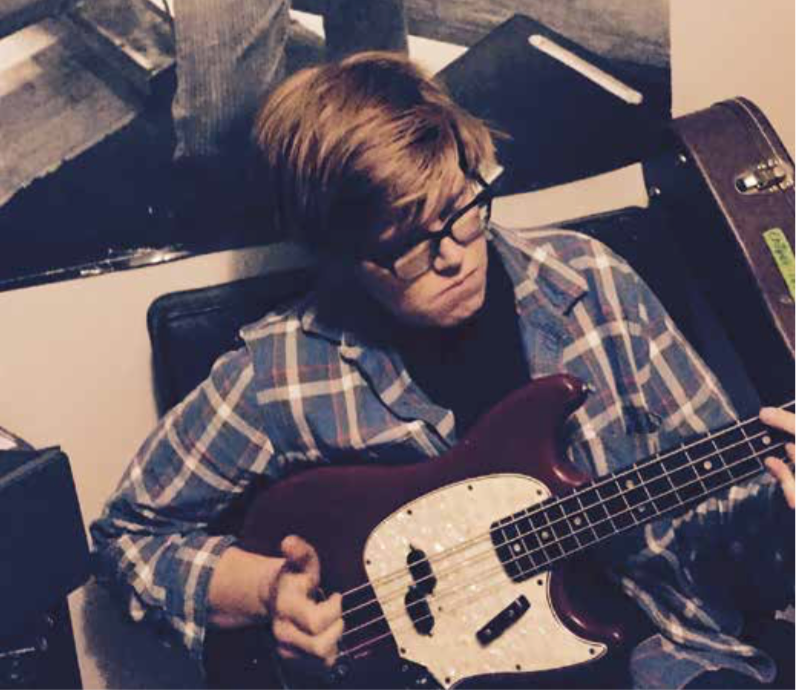Reel Time: Brett Dennen

“The only complicated thing about this record was the songwriting,” singer-songwriter Brett Dennen says with a slight chuckle while surveying the early stages of his forthcoming sixth album. The 36-year-old California native recently returned home from a rapid- re tracking session in Nashville, Tenn., with producer Dave Cobb, who is best known for his work with alt-country crossover acts like Sturgill Simpson, Chris Stapleton, Jason Isbell and Shooter Jennings. He set up shop at Low Country, Cobb’s home studio, for three weeks last fall and laid down a batch of ideas that he hopes will capture both the raw intimacy of his earliest releases and the live, kaleidoscope, festival energy of his 2011 album, Loverboy.
Most songs were recorded in about three takes, and Dennen says that Cobb purposely kept his demos from their studio band before cutting the record. “I wanted it to be a really vulnerable record, but I also wanted it to have some songwriting craft. It all comes from a really sincere, insecure place. That’s why I love Paul Simon and Sting. Their music has a reggae flavor, but there are these sad tones in there.”
QUICK AND EASY
Dave Cobb’s on a roll right now, tearing it up in the outsider- country music scene, as well as in rock-and-roll. We recorded this album with his buddies who play on most of the albums he produces—Brian Allen (bass) and Chris Anderson (drums)— as well as with Dave on some acoustic guitar and Jon Solo (keyboards) from my band.
Matt Ross-Spang engineered it. He’s the guy who revitalized Sun Studios over the last 11 years and brought in all this vintage gear. He’s become a master at recording the way great American soul and gospel albums used to be made, and that’s the way Cobb works, too—as much as possible on the tape, track everything really quickly and go with those rst inspirations. Cobb doesn’t stress about the takes—he likes to go fast and doesn’t spend a lot of time overdubbing or mixing. He was secretive about the demos and wouldn’t let the musicians hear them. We recorded everything to 1-inch tape on an 8-track.
MOUNTAIN JAMS
Everything about this record feels simple except the song- writing. I pushed myself, took some time alone up in the mountains. I didn’t want to sound like a crappy, slick songwriter, but I wanted the melodies to be strong and very minimal. In order for my process to get to that place, I needed to spend some time working and reworking the songs. But I also wanted it to feel vulnerable and raw, which people associate with songs that don’t have a lot of editing. I wanted the songs to sound and come across like my earliest records, back when I was playing with the ALO guys and I didn’t know anything about the music industry.
I’ve learned a lot along the way, and it is all great, but in the beginning, it was just me being me. I wasn’t aware of how long songs were supposed to be or how catchy they needed it to be. So I wanted it to sound like that but also apply all that I’ve learned along the way, and I kind of had to because my whole songwriting process has changed—for the better. But the spirit—the things I am singing about—feels like my first record.
BRINGING JAMAICA TO MUSIC CITY When I made Loverboy, I wanted to make something big—take on something that I thought was even bigger than I could handle. With Smoke And Mirrors, I had always wanted to make a true Americana—almost country— album, and trust me, that album was the closest I could get to country. Musically, this record is going to feel like a mix of Loverboy and my rst, self-titled record. This record doesn’t sound like I made it in Nashville; it sounds like I made it in Jamaica. The only reason I went back to Nashville for this record is because that’s where Cobb likes to work and feels comfortable working quickly, and it is affordable.

RIGHT IDEAS
I’ve learned over the last record or two to pull back on playing songs live before I’m done with an album. Not only would fans get attached to the live versions, but I would too. When the songs would start to take on a new shape in the studio and someone might have an idea that was the right idea, I might be the one holding it back because I am used to hearing a song the way I’ve been playing it. Sometimes, it takes someone’s different, unique opinion of a song to let it get better. It’s something that I noticed while making this record, and the songs were able to take on new shapes. Plus, when I want to hear a new piece of music, I want to be alone, listening on a speaker.
SELF-REFLECTION
All of these songs were written out of a place of feeling pretty insecure, lacking in con dence. I was getting jealous or envious, and was just unhappy with things in my life and other people around me. It also came out of not really checking in with myself and appreciating myself—being disconnected with myself. It’s something that’s prone to happen in my life, and it’s happened before.I remember it happened when I first got out of college and was trying to figure out what I was going to do with my life. And through just getting back in touch with writing, painting and playing music, I wrote my way through that little sad period while I was alone. And the songs that came out of it are about believing in myself and standing by someone else’s side and believing in them, and standing up for what you believe is right for the world.
All these songs share that feeling, and all my songs come from that place. This one has a deeper tone, but you might not pick up on it because the music is so uplifting. There’s a lot of reggae and Brazilian sounds and dance music. It is tropical sounding and has some old rock-and-roll sounds and classic ballads.



















